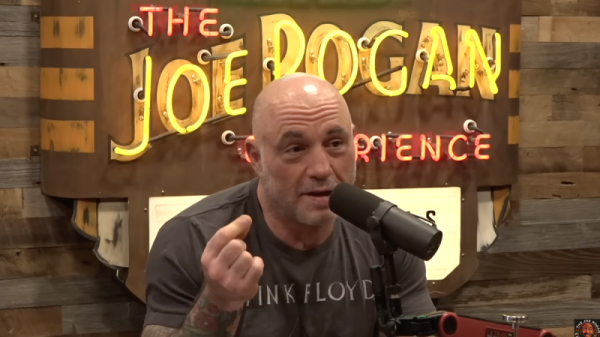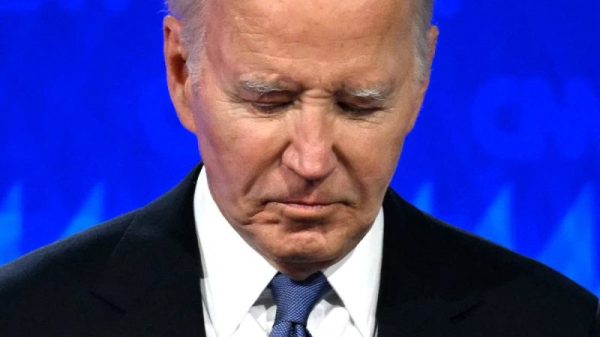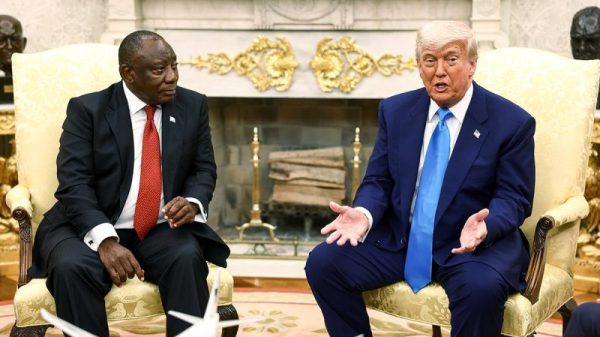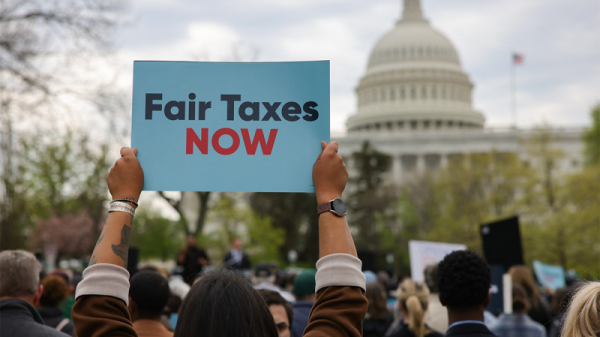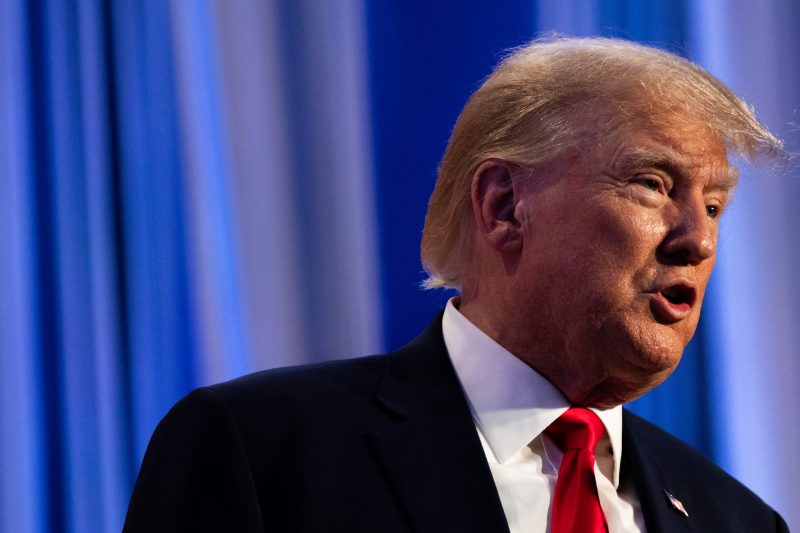On Friday, the Associated Press released new polling conducted by NORC, evaluating how Americans view the state of democracy in this country. Views were disconcertingly mixed, with about half the country saying that it was functioning at least somewhat well and just under half saying it wasn’t functioning too well — or wasn’t functioning well at all.
Given other recent polling, the partisan divide recorded by the AP isn’t surprising. Most Democrats said they thought democracy was working at least somewhat well. Six in 10 Republicans said it wasn’t working too well or wasn’t working well at all. Independents were only slightly less pessimistic.
Research from YouGov reinforces a similar sentiment on the right, finding that, when asked to measure American democracy on a scale from zero to 10, about three-quarters of Republicans rated it at 5 or lower. What’s more, there has been a significant negative shift since 2022 — suggesting, perhaps, that the party’s underperformance might have increased antipathy to the process.
The AP poll also asked respondents whether they thought the government did a good job representing the interests of most Americans or of people like them. Most Republicans said the government did neither, with 6 in 10 saying the government did not represent their own interests well.
Those two AP findings are conflated. If you believe your interests aren’t well represented by the government, you might lose confidence in the democratic process that established that government. If, on the other hand, you’re skeptical of the process, you might be inclined to view the government as uninterested in your interests.
This is a bigger problem for democracy than it might seem.
The value proposition of American governance is the idea that elections determine leadership temporarily, with power allocated depending on the public will for periods of two, four or six years. But that system depends on something that Americans once largely took for granted: leaders and voters respecting power as transitory. In the case of leaders, that meant recognizing that, say, the presidency was an institution that different people were temporarily granted the right to manage. For voters, it meant recognizing that even losing one election didn’t mean losing the next one. That losing power didn’t mean losing it forever. That the government itself is an enduring institution with ever-changing stewards.
Donald Trump never understood that the presidency was not his or that the government was not the Trump Organization. He had little familiarity with basic functions of government or the rules that bound government activity so he acted as though they didn’t exist. And, as the New York Times reported Monday, that’s his vision for a possible second term in office: overhauling the government so that it is not enduring but subjugated.
“Trump and his associates have a broader goal,” Jonathan Swan, Charlie Savage and Maggie Haberman wrote: “to alter the balance of power by increasing the president’s authority over every part of the federal government that now operates, by either law or tradition, with any measure of independence from political interference by the White House.”
There have been rumblings of this for some time. Toward the end of his administration, Trump and his most loyal aides attempted to evaluate the political loyalty of government staffers. In October 2020, he implemented a process for more easily firing government staffers, which President Biden rescinded. But Trump has repeatedly mentioned reintroducing it.
The idea is uncomplicated: Make the bureaucracy fully accountable to the president. The downsides to this should be obvious, from eliminating enormous institutional knowledge to reinventing key systems of government every four to eight years. But it’s also easy to see the appeal to Trump, whose autocratic instincts are unsubtle. It would turn him from a president — one who presides over government — into the CEO of a private organization once again, with all that entails.
If your view of government is that it isn’t meeting your interests and, more importantly, if your view is that democracy itself is failing, this idea has an appeal. Why not simply take over the government and root out what you have called “deep state” actors, a group that might be described by an objective observer as experienced bureaucrats? Just uproot everything and make it look the way you want, particularly if the idea of an enduring governmental institution with temporary managers isn’t one you respect.
Most importantly (or, depending on your view, alarmingly), it vastly increases the stakes of keeping Trump — or at least another Republican — in power. If the entire functioning of government is downstream from the whims of the president, then the person serving as president becomes much more important. And if you believe that electing presidents based on an approximation of public support is the sort of democracy that you think isn’t working, you’re probably going to be less worried about whether Trump is bound by constitutional limits on his service or about state-level efforts to influence election outcomes.
It’s easy to anticipate a slippery slope from Trump’s proposal. It’s also probably somewhat unwise to do so, given Trump’s often inept efforts to work around government institutions when he was in office.
What Trump proposes, though, is a collapse of the idea of a democratic government with temporary stewards, an extension of his own misunderstanding of the position he once held to a wide array of federal departments. If polling is any indicator, much or most of his party wouldn’t object.

